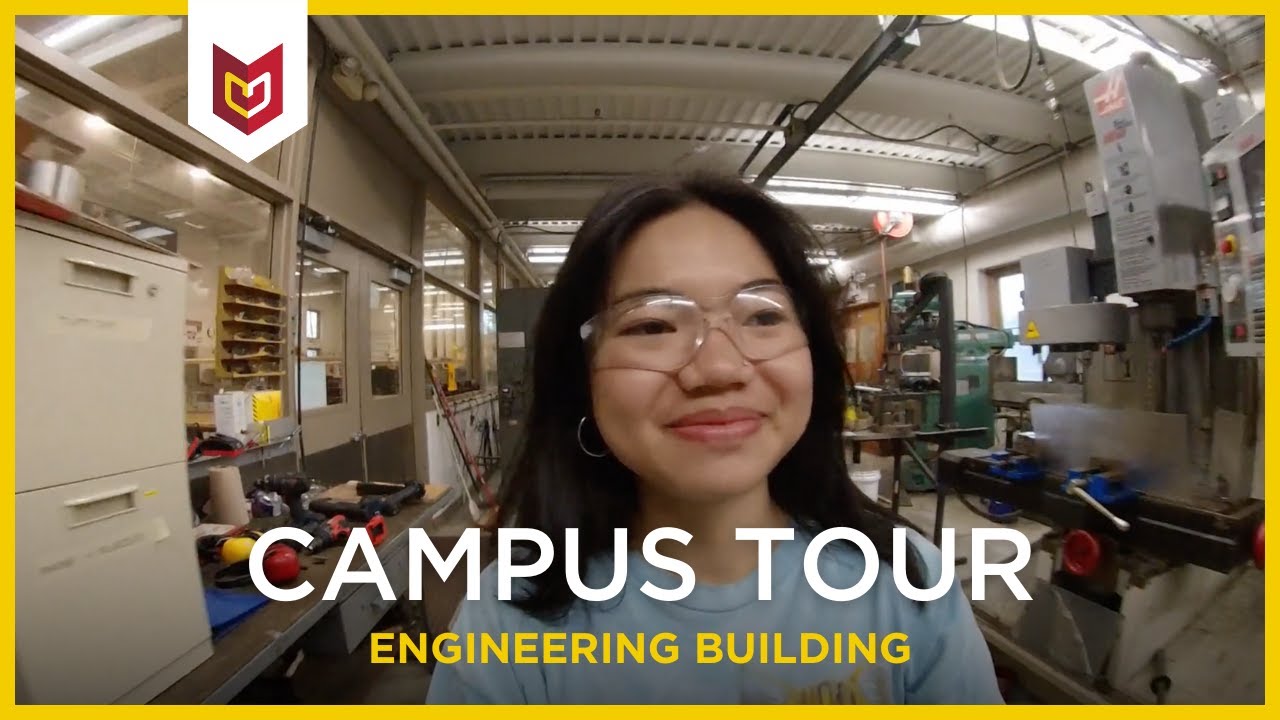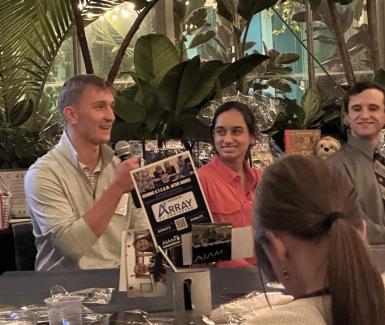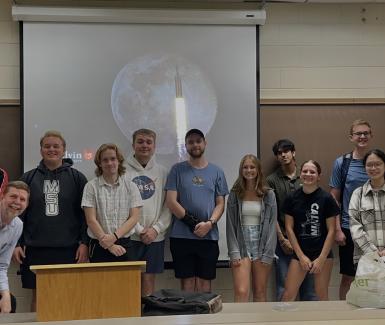What You'll Learn
Reach greater heights with the new Aerospace Engineering Concentration now at Calvin!
From airplanes and rockets to wind turbines and underwater vehicles, you’ll put your ingenuity to work solving problems and pushing the boundaries of what modern technology can accomplish. At Calvin, you’ll find everything you need to do that: experienced faculty, high-tech facilities, state-of-the-art tools, hands-on internships, and the chance to study abroad.
Be prepared to take part in this rapidly expanding global field. And because this is a Calvin engineering degree, you’ll graduate with something equally important: a desire to use your skills to make life more just.
What Makes This Program Great
- Graduate in four years with real-world experience: It’s rare to find an accredited Aerospace engineering program at a Christian university, let alone one with internship and study abroad opportunities. At Calvin, you will!
- Enhance your degree: Employers aren’t just looking for engineers with technical skills—they want engineers with broad skillsets and proven adaptability. Stand out in the job market by adding an optional international or sustainability designation to your degree.
- Faithful creativity: Your professors are committed Christians who approach engineering as a way to create solutions to real problems. At Calvin, faith and ethics aren’t an optional addition—they’ll infuse everything you design and build.
- Loading...


Add a sustainability designation to your engineering degree
Adding a sustainability designation to your degree means you’re committed to a bigger vision of what you can do as a student at Calvin. It also means you’ll be well-suited for the job market.

Study engineering in Germany
Study engineering while you learn some German language and culture at the Technische Universität Berlin. This six-week off-campus program is a highlight of the Calvin's engineering program.
Faculty
Dedicated Christian professors will challenge you to integrate your faith and engineering. They will know you personally and will also use their industry experience to prepare you for internships and career choices.












